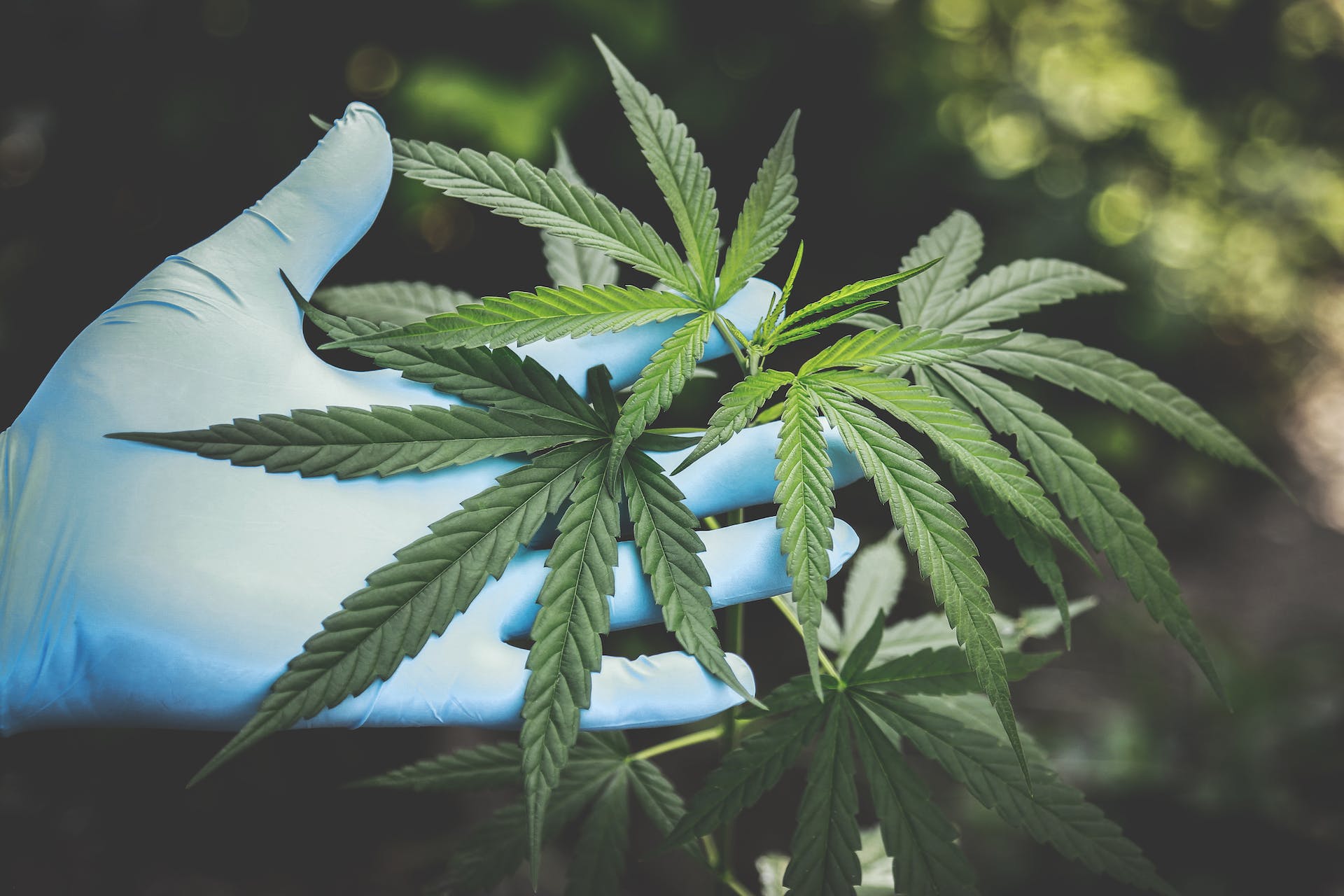Understanding Marijuana Legalization in North Carolina: Current Status and Future Prospects
by duncan Winter on Apr 18, 2024

North Carolina's stance on marijuana legalization has been a topic of ongoing debate. While some states have embraced legalization for medical or recreational purposes, North Carolina's laws remain relatively strict. This comprehensive guide explores the current legal landscape, public opinion, and potential future developments surrounding marijuana in the state.
The Legal Status of Marijuana in North Carolina
Under current North Carolina laws, the possession, sale, and cultivation of marijuana remain illegal for both medical and recreational purposes. The state classifies marijuana as a Schedule VI controlled substance, with penalties ranging from misdemeanors to felonies depending on the amount involved and the intent (personal use or distribution).
Possession of up to 0.5 ounces of marijuana is considered a Class 3 misdemeanor, punishable by a maximum fine of $200. Larger amounts or possession with the intent to sell or distribute can result in felony charges, carrying the possibility of substantial fines and imprisonment.
Despite the strict laws, there have been recent efforts to decriminalize or legalize marijuana in North Carolina. In 2021, a bill was introduced to legalize the possession and sale of marijuana for adults aged 21 and older, although it did not pass. Advocates continue to push for reform, citing potential economic and social benefits.
Medical Marijuana in North Carolina
Right now, North Carolina does not allow people to use marijuana for medical reasons. The laws in our state do not make any exceptions for medical marijuana use. This means that even if you have a really bad illness, like cancer or multiple sclerosis, you cannot legally use marijuana to help with your symptoms or treatment.
Some other states do allow medical marijuana though. They have set up programs where people with certain qualifying medical conditions can get a card or prescription to purchase and use marijuana from licensed dispensaries. The list of qualifying conditions varies from state to state, but often includes things like chronic pain, epilepsy, and nausea from cancer treatments.
There have been some efforts in North Carolina to legalize medical marijuana too. A few years ago, lawmakers introduced bills that would have created a tightly regulated medical marijuana program in our state. However, those bills did not end up passing. Medical marijuana advocates keep trying though, and new bills get proposed pretty much every year. They argue that medical marijuana could provide relief to many suffering North Carolinians.
The National Landscape of Marijuana Legalization
While marijuana is still illegal at the federal level, more and more states have started legalizing it for medical or recreational adult use over the past decade. As of 2023, 19 states and Washington D.C. have legalized marijuana for recreational purposes. This allows adults 21 and over to purchase and consume marijuana from licensed retailers, similar to alcohol.
An even larger number of states - 37 plus D.C. - have comprehensive medical marijuana programs in place. The qualifying conditions and rules around these programs differ from state to state. But in general, they allow people with certain medical issues to obtain marijuana for therapeutic use with a doctor's recommendation.
At the same time, marijuana remains a Schedule I controlled substance under federal law, which deems it to have no accepted medical use and a high potential for abuse. This conflicting stance between state and federal policies has created a complicated legal landscape. Marijuana businesses operating legally under state laws still face difficulties like restricted access to banking services.
The Economic Impact of Marijuana Legalization
If North Carolina did decide to legalize and regulate marijuana, there could be some significant economic benefits. Based on what we've seen in other legal states, a taxed and regulated marijuana industry could generate hundreds of millions in annual tax revenue for our state. It would also likely create many new business opportunities and jobs in agriculture, manufacturing, retail, and more.
Legalization could potentially give a boost to North Carolina's tourism industry as well by attracting cannabis-friendly visitors and associated businesses like marijuana tours or cannabis-themed lodging and events.
Of course, opponents raise concerns about the public health and safety impacts of increased marijuana access and use. There are worries about impaired driving, youth use, and other potential issues that would need to be carefully regulated. Overall though, most economic analyses suggest legalization would have a positive fiscal impact on North Carolina.
Public Opinion on Marijuana Legalization in North Carolina
Public opinion surveys show that support for legalizing marijuana in North Carolina has grown in recent years, but residents remain somewhat divided on the issue. A 2021 poll by Elon University found that 54% of North Carolinians support legalizing recreational marijuana, while 38% oppose it.
However, the demographics of who supports and opposes legalization look a bit different. The Elon poll found that younger adults under 50 overwhelmingly support legalization at around 70%. Older generations tend to be more skeptical, with only around 35% of those 65 and up in favor. Support is also higher among Democrats than Republicans.
There are a number of active advocacy organizations influencing the marijuana debate in North Carolina. Chief among them is the North Carolina Cannabis Activists Network, which lobbies for reform and hosts public education events. Veteran groups like the North Carolina Green Beret Association have also voiced support for legalization.
On the other side, opponents include law enforcement organizations like the North Carolina Police Chiefs Association and religious groups like the North Carolina Values Coalition. The State's Republican leadership has largely opposed legalization so far as well.
Arguments For and Against Legalization
Those in favor of legalizing marijuana point to the potential economic benefits like new tax revenues and job creation in agriculture, retail, tourism and more. Estimates suggest North Carolina's legal marijuana market could eventually be worth over $1 billion annually.
Supporters also argue that legalization would reduce criminal justice costs by decriminalizing a widely-used substance and freeing up law enforcement resources. Social justice is another cited benefit, as marijuana charges disproportionately impact minority communities.
From a health perspective, some feel regulated medical marijuana access could help patients find relief from chronic pain, nausea, and other conditions without as many side effects as pharmaceutical drugs.
Opponents remain deeply concerned about threats to public health and safety though. They point to research linking increased marijuana access to upticks in impaired driving and youth usage rates in legalized states. There are also worries about normalizing substance use and cannabis being a potential "gateway" to harder illegal drugs.
Law enforcement groups argue legalization would complicate their ability to enforce laws and create a regulatory nightmare. Religious groups and others simply view marijuana as an immoral or dangerous vice that should remain prohibited.
What's Next for North Carolina?
The path ahead for marijuana legalization in North Carolina remains uncertain. While public support has grown, the state's Republican-controlled General Assembly has so far been unwilling to advance any meaningful reform, citing public health and safety concerns.
However, advocates have found some bipartisan success on more modest steps like decriminalization and medical marijuana research. In 2022, the legislature approved a law downgrading possession of up to 4 ounces to a civil offense punishable only by a fine.
On the medical side, the legislature created a pilot program in 2021 to research the use of cannabis-derived treatments for separating veterans and those with PTSD, severe autism or terminal illness. That research is currently ongoing.
In 2023, Democrats in the State Senate filed the Fresh Start Act which would legalize possession of up to 4 ounces of marijuana and expunge prior marijuana convictions. A separate bill called the NC Compassionate Care Act would establish a tightly regulated medical marijuana program.
While these bills face an uphill battle in the Republican-led legislature, every new filing helps advance the public conversation. Many are looking to North Carolina's gubernatorial election in 2024 as a potential turning point, should a more cannabis-friendly governor take office.
Local governments in cities like Asheville and Charlotte have also taken steps to deprioritize marijuana enforcement at the municipal level. This could spur the legislature to act to provide statewide consistency.
Most legal experts predict North Carolina won't be among the first wave of Southern states to fully legalize recreational marijuana in the next few years. But an increasing number feel some form of decriminalization or tightly regulated medical program could potentially be on the horizon over the next 3-5 years as neighboring states move ahead with reform.
FAQ:
Is marijuana legal for recreational use in North Carolina?
- No, recreational marijuana use is still illegal in North Carolina.
What are the penalties for marijuana possession in North Carolina?
- Possession of up to 0.5 ounces is a misdemeanor with potential fines and jail time.
Is medical marijuana legal in North Carolina?
- No, medical marijuana is not currently legal in North Carolina, but there are efforts to legalize it.
What conditions qualify for medical marijuana use in other states?
- Common qualifying conditions include chronic pain, epilepsy, multiple sclerosis, and cancer.
How many states have legalized recreational marijuana?
-
As of 2023, 19 states have legalized recreational marijuana for adult use.
Also read:- A Comprehensive Guide to the Lesser-Known Health Benefits of Cannabis Sativa





